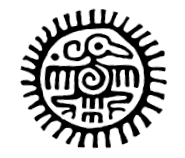Week of March 5th, 2026
The Miracle Is Here Now
Here's a link to my weekly email newsletter, featuring the Free Will Astrology horoscopes, plus a celebratory array of tender rants, lyrical excitements, poetic philosophy, and joyous adventures in consciousness.It arrives every Tuesday morning by 7:30 am.
Sign up here for your subscription.

My book
Pronoia Is the Antidote for Paranoia is available at Amazon and Bookshop.org
Below is an excerpt.
DEVOTIONAL PRONOIA THERAPY. Experiments and exercises in becoming a gracefully probing, erotically funny, shockingly friendly Master of Orgasmic Empathy
1. What causes happiness? Brainstorm about it. Map out the foundations of your personal science of joy. Get serious about defining what makes you feel good.
To get you started, I'll name some experiences that might rouse your gratification: engaging in sensual pleasure; seeking the truth; being kind and moral; contemplating the meaning of life; escaping your routine; purging pent-up emotions. Do any of these work for you? Name at least ten more.
+
2. Are other people luckier than you? If so, psychologist Richard Wiseman says you can do something about it. His book *The Luck Factor* presents research that proves you can learn to be lucky. It's not a mystical force you're born with, he says, but a habit you can develop.
How? For starters, be open to new experiences, trust your gut wisdom, expect good fortune, see the bright side of challenging events, and master the art of maximizing serendipitous opportunities.
Name three specific actions you'll try in order to improve your luck.
+
3. Dumb suffering is the kind of suffering you're compulsively drawn back to over and over again out of habit. It's familiar, and thus perversely comfortable. Smart suffering is the kind of pain that surprises you with valuable teachings and inspires you to see the world with new eyes.
While stupid suffering is often born of fear, wise suffering is typically stirred up by love. The dumb, unproductive stuff comes from allowing yourself to be controlled by your early conditioning and from doing things that are out of harmony with your essence. The smart, useful variety arises out of an intention to approach life as an interesting work of art and uncanny game that's worthy of your curiosity.
Come up with two more definitions about the difference between dumb suffering and smart suffering.
+
4. Write the following on a piece of red paper and keep it under your pillow. "I, [put your name here], do solemnly swear on this day, [put date here], that I will devote myself for a period of seven days to learning my most important desire. No other thought will be more uppermost in my mind. No other concern will divert me from tracking down every clue that might assist me in my drive to ascertain the one experience in this world that deserves my brilliant passion above all others."
+
5. The primary meaning of the word "healing" is "to cure what's diseased or broken." Medical practitioners focus on sick people. Philanthropists donate their money and social workers contribute their time to helping the underprivileged. Psychotherapists wrestle with their clients' traumas and neuroses. I'm in awe of them all. The level of one's spiritual wisdom, I believe, is more accurately measured by helping people in need than by meditation skills, shamanic shapeshifting, supernatural powers, or esoteric knowledge.
But I also believe in a second kind of healing that is largely unrecognized: to supercharge what is already healthy; to lift up what's merely sufficient to a sublime state. Using this definition, describe two acts of healing: one you would enjoy performing on yourself and another you'd like to provide for someone you love.
+
6. Is the world a dangerous, chaotic place with no inherent purpose, running on automatic like a malfunctioning machine and fundamentally inimical to your drive to find meaning? Or are you surrounded by helpers in a friendly, enchanted universe that gives you challenges in order to make you smarter and wilder and kinder and trickier?
Trick questions! The answers may depend, at least to some degree, on what you believe is true.
Formulate a series of experiments that will allow you to objectively test the hypothesis that the universe is conspiring to help dissolve your ignorance and liberate you from your suffering.
+
7. Those who explore pronoia often find they have a growing capacity to help people laugh at themselves. While few arbiters of morality recognize this skill as a mark of high character, I put it near the top of my list. In my view, inducing people to take themselves less seriously is a supreme virtue.
Do you have any interest in cultivating it? How might you go about it?
+
8. Computer programmer Garry Hamilton articulated the following "Game Rules." Give examples of how they have worked in your life.
1. If the game is rigged so you can't win, find another game or invent your own. 2. If you're not winning because you don't know the rules, learn the rules. 3. If you know the rules but aren't willing to follow them, there's either something wrong with the game or you need to change something in yourself. 4. Don't play the game in a half-baked way. Either get all the way in or all the way out. 5. It shouldn't be necessary for others to lose in order for you to win. If others have to lose, re-evaluate the game's goals.
+
9. "There are two ways for a person to look for adventure," said the Lone Ranger, an old TV character. "By tearing everything down, or building everything up." Give an example of each from your own life.



